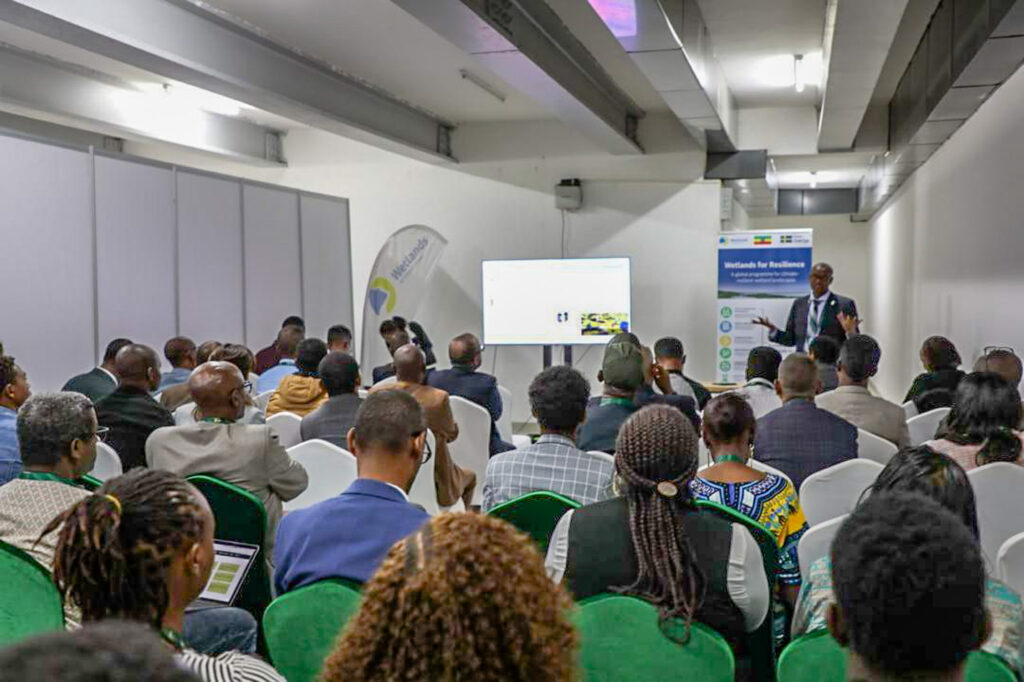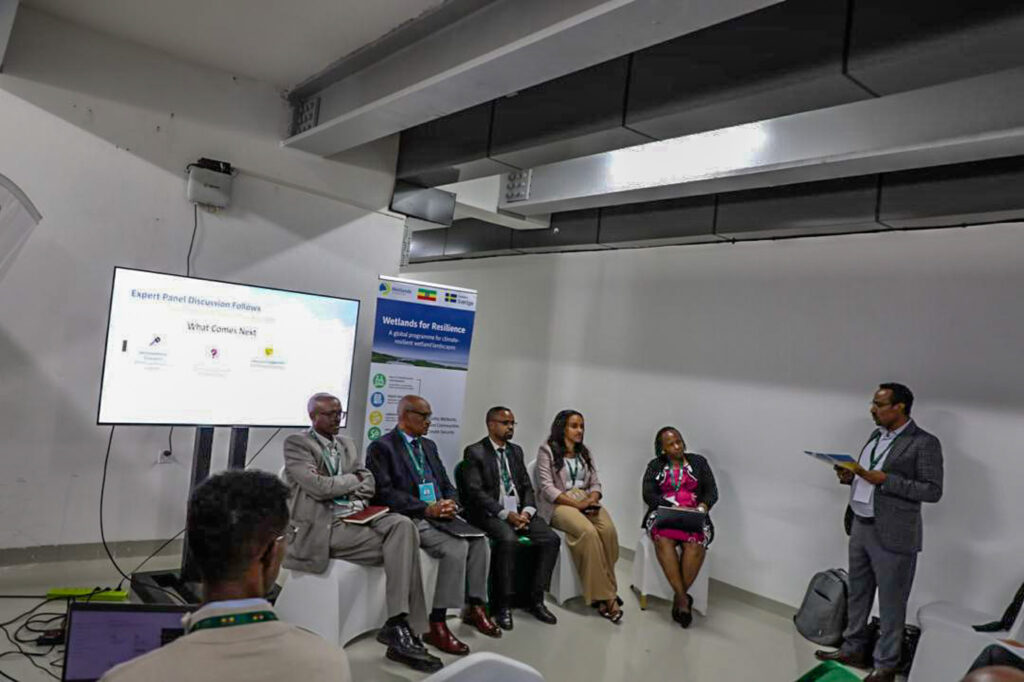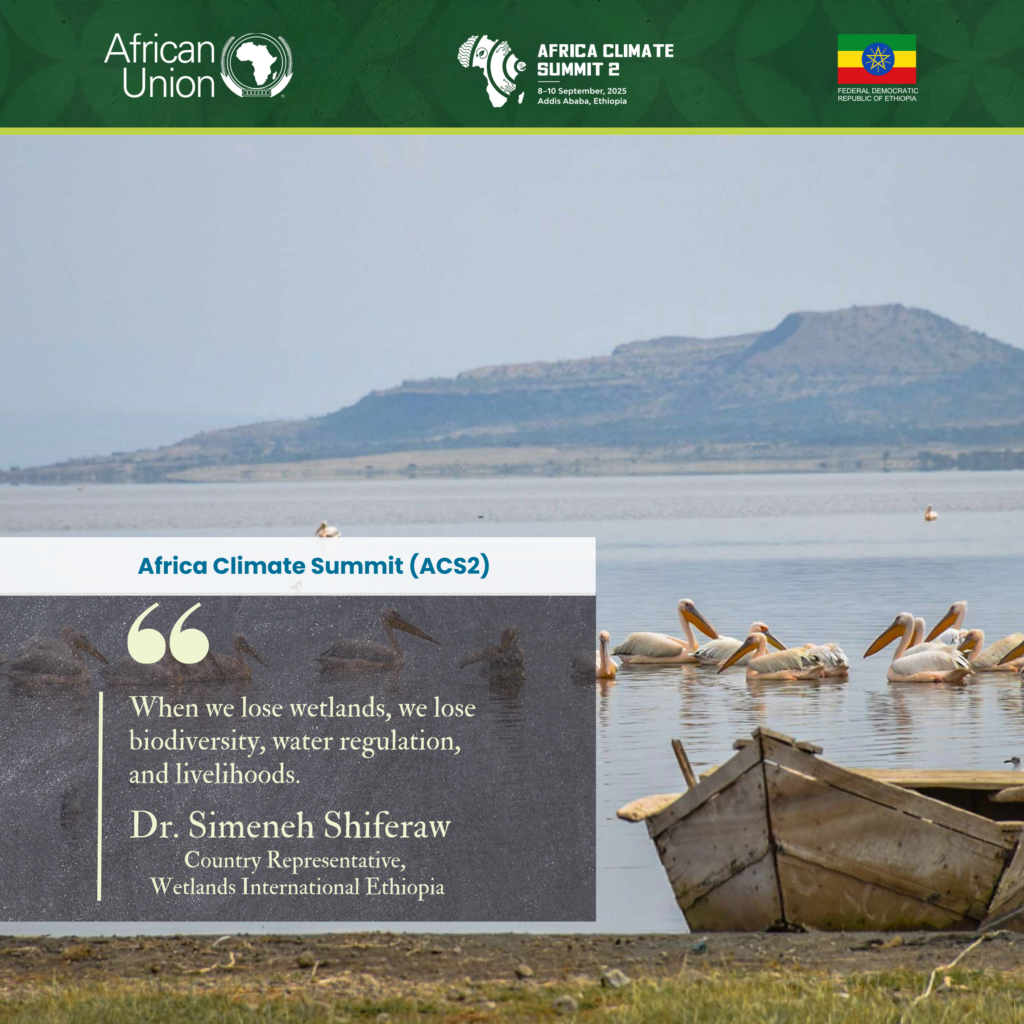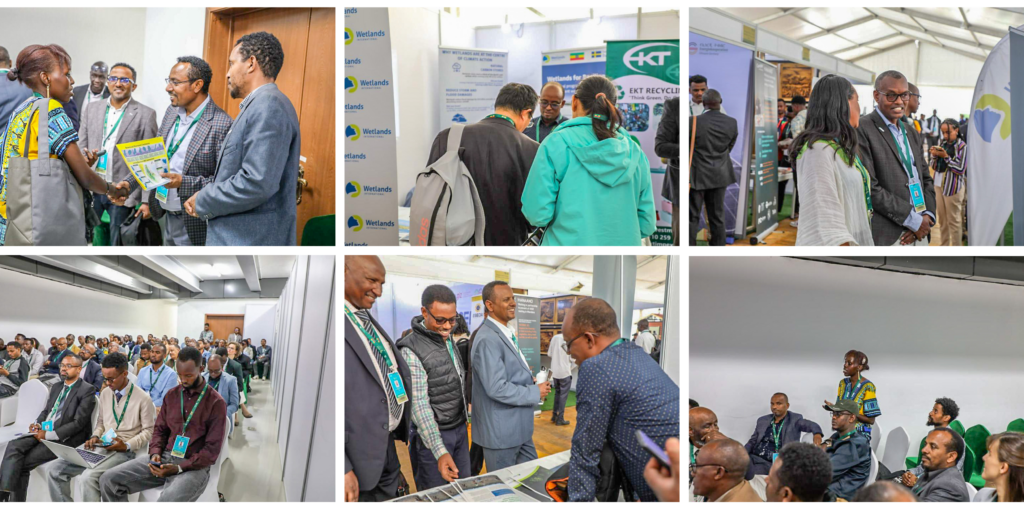
Wetlands at the Heart of Africa’s Green Future:Highlights from ACS 2

In the quiet morning light, the wetlands of Africa awaken. Mist floats over papyrus swamps. Fishermen push their boats into still waters. Birds rise in swirling patterns, a reminder of how deeply life depends on these hidden ecosystems.
From the Nile to the Niger, Africa’s wetlands quietly hold the continent together. They store carbon, regulate water, sustain fisheries and agriculture, provide green jobs, and feed millions of people. Yet, across the continent, these life-giving waters are disappearing. Drained for farms, replaced by cities, or simply ignored in national planning, wetlands are often treated as empty land waiting to be used.
At the Africa Climate Summit 2 (ACS2) in Addis Ababa, a different story took shape. Leaders, scientists, youth, and community voices gathered not to talk about problems alone, but to imagine a future where wetlands stand at the centre of Africa’s development vision.

The discussions were not just technical. They were personal. A youth representative from Lake Ziway described how declining wetlands were affecting both fishing livelihoods and drinking water quality in rural Ethiopia. A government delegate spoke of flood-prone cities now looking to wetland restoration as a natural buffer against urban disasters. An investor explained the untapped potential of blended finance, combining public funds, private investment, and community-led stewardship to scale wetland protection projects across borders.
Dr Julie Mulonga, Regional Director of Wetlands International Eastern Africa, set the tone with a direct appeal. “Wetlands are not optional in the fight against climate change. They are fundamental to resilience, livelihoods, biodiversity, and economic growth.”

Her words echoed the summit’s broader call to unlock African capital. “Wetlands are Africa’s natural capital,” she emphasised, “and investing in them is investing in the continent’s future.”
Throughout the session, the conversation wove between science and culture, innovation and tradition. Experts explored how to bridge indigenous knowledge with modern technology, mapping floodplains using satellites while empowering local communities who have managed wetlands for generations. There were calls to reform policies that treat wetlands as empty land and to create legal frameworks that protect them as critical national infrastructure.
One recurring theme stood out: collaboration. Wetlands do not recognise borders, and neither can solutions. Participants urged regional partnerships, cross-sector investments, and knowledge-sharing networks to ensure that the health of Africa’s wetlands is treated as a shared responsibility.
By the end, the mood had shifted from concern to conviction. Wetlands are not just habitats. They are solutions to water scarcity, to food insecurity, to climate resilience, to job creation, and even to peace, where shared waters link nations and communities.
As Dr Simeneh Shiferaw, Country Representative of Wetlands International Ethiopia, reminded the room, “When we lose wetlands, we also lose biodiversity, water regulation, and livelihoods.”

In Addis Ababa, a collective commitment took root. Africa must move wetlands from the margins to the centre of climate and development action. It is no longer a question of whether we can afford to invest in wetlands. It is a question of whether we can afford not to.
The rivers, marshes, floodplains, and deltas of Africa are more than landscapes. They are living promises that if we act now, they can secure a climate-safe, food-secure, and prosperous future for millions.
The work begins here. The work begins now.
Key Outcomes at a Glance
- Wetlands Repositioned as Natural Capital
Recognised as essential for climate resilience, water security, biodiversity, green jobs, and economic growth. - Urgent Action on Wetland Loss
Stakeholders acknowledged alarming rates of decline, calling for immediate and coordinated protection and restoration. - Integrated Approaches Encouraged
A strong push to blend traditional ecological knowledge with modern science and to move beyond fragmented, isolated projects. - Innovative Financing and Partnerships
Emphasis on green bonds, payment for ecosystem services, co-management agreements, and multi-stakeholder platforms to mobilise investments. - Youth and Communities as Leaders
Highlighted the role of young people, women, and local communities as innovators, decision-makers, and champions of wetland stewardship. - Call to Mainstream Wetlands
A collective commitment to move wetlands from the margins to the centre of Africa’s climate and development agendas.

